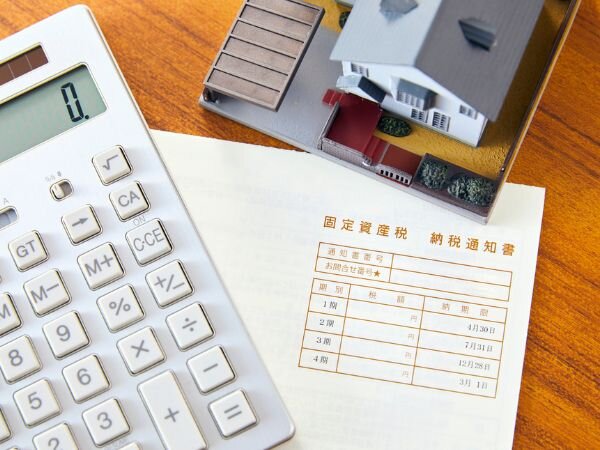
Selling a house in Pennsylvania may produce money, but capital gains tax applies. This element of the property transfer procedure may be confusing, but understanding the tax structure is crucial to securing the best deal. This tutorial clarifies Pennsylvania’s capital gains tax. It explains how these taxes are calculated, what exemptions exist, and how to reduce your tax burden when selling your home.
Brief Overview
Pennsylvania home sellers face complex state and federal capital gains tax difficulties. To calculate your profit tax, you need the adjusted basis of your property, which is the original purchase price plus any revisions. Pennsylvania has a flat personal income tax, although state-specific exclusions may minimize your rate. Strategic planning, like federal exclusions and sales scheduling, can maximize profits. Keep up and contact financial professionals to make wise home-selling decisions. It helps them follow the regulations and get the most money.
Key Highlights
- Pennsylvania’s capital gains tax affects property sales profits.
- Pennsylvania taxes capital gains at 3.07%.
- Property location and federal exemptions greatly impact tax obligations.
- Tax methods include exemptions and detailed recordkeeping.
- Selling property you bought from someone else makes taxes difficult.
Understanding Capital Gains Tax in Pennsylvania
Consider the Pennsylvania capital gains tax when selling a home. Property sales are taxed, which affects your finances. Know how the gains tax may affect your sale, whether it’s your primary home or an investment. Pennsylvania taxes income according to certain factors. These are state-specific exemption and modified basis laws. Knowing what these mean for selling your house will help. This is how the capital gains tax affects Pennsylvania home sellers.
What Qualifies as Capital Gains in Pennsylvania

In Pennsylvania, “capital gains” are the money you make by selling your residence for more than you paid. The adjusted basis is your home’s initial price plus any adjustments minus depreciation. Knowing your sales revenue is crucial. Since Pennsylvania taxes these gains as personal income, you must comprehend federal and state tax regulations. Your gains tax depends on the type of gain, the property, and your ownership history. Because state and federal requirements differ. Sellers must consider whether the property was their main home when calculating capital gains tax. You can obtain an edge if you’ve lived in your Pennsylvania home for at least two to five years before selling. Pennsylvania partially applies the federal exclusion rule, so you won’t pay gains tax on most of your profit. The difference between short-term and long-term gains influences taxable income. Long-term earnings are taxed less; therefore, homeowners should consider selling when. Pennsylvania property location may affect time and capital profits. Higher property taxes in some counties may affect totals. After a disaster, you may be eligible for tax reductions for home improvements or income tax modifications. If you sell to move for work or health, Pennsylvania law may let you keep some of your money tax-free, lowering your tax payment. Good money managers can save taxes with these exemptions.
Understanding the gains tax requires knowledge of Pennsylvania and federal laws. To sell your house for the greatest money, keep up with Pennsylvania and federal tax law changes. Therefore, you must know Pennsylvania capital gains to calculate your home sale tax. Knowing your adjusted basis, personal income tax liabilities, and tax exemptions can affect your finances if you own or invest in property. This information will help you prepare and take advantage of capital gains tax reductions while selling your Pennsylvania property fast and for a reasonable price. When selling your Pennsylvania property, time it to align with market conditions to maximize your profits and minimize capital gains tax. Buy the same property in tax-deferred swaps like 1031 exchanges to delay capital gains taxes. Legal upgrades might increase your property’s cost basis and minimize taxed gains. Consult tax pros to determine your adjusted basis and maximize deductions. Pennsylvania may offer tax rebates or incentives for energy-efficient or historic homes. Try gifting property to lower your estate taxes. Last sentence: These strategies will help you sell your Pennsylvania property for more
Differences Between Federal and Pennsylvania Tax Policies
Know the differences between federal and Pennsylvania tax rules before selling your house to correctly handle your tax liability. varying countries have varying capital gains, personal income, and taxable income restrictions, which affect sellers. Federal capital gains tax standards are the same, but Pennsylvania has odd rules that could hurt your money. This includes capital gains and state tax exemptions. Compare these discrepancies by looking at Pennsylvania’s capital gains tax and other financial constraints.
Pennsylvania Taxation of Capital Gains on Home Sales
Pennsylvania taxes home sales as personal income. Because the state sets taxes. Pennsylvania taxes all primary and investment property sales as personal income. However, the federal capital gains tax assesses gains based on asset type and duration. This system simplifies taxes but affects homeowners and investors. State taxes personal income on these gains at 3.07%. This may be simpler than the tiered federal system, which treats short-term and long-term capital gains differently, but it has issues. Sellers used to federal exclusions like the $250,000 (or $500,000 for married couples) exclusion on earnings from selling their principal residence may not have as many state-level relief options.
The stable state of Pennsylvania makes tax management straightforward. That aids financial planning. Pennsylvania capital gains tax exclusions and credits reduce your liability. Deducting property improvements may lower the adjusted basis and gain. But federal tax law has several sales exceptions for various reasons. Pennsylvania has stricter personal income tax rules. You must understand how the federal capital gains tax and state taxes are combined to pay your taxes. Pennsylvania’s system shows your debt. Because the laws and deductions are so strict, taxpayers must keep accurate financial records and use tax advisers to get the greatest outcomes. Pennsylvania’s flat rate property sales tax is part of a complex tax system that requires careful planning. Knowing state capital gains restrictions and taking deductions helps homeowners satisfy their responsibilities and maximize their money. This is crucial for Pennsylvania house sellers, whether investors or homeowners moving out.
Exploring Pennsylvania Capital Regulations
Pennsylvania capital laws and taxes affect property purchases and management. These restrictions affect numerous property and financial management areas, changing sellers’ and investors’ asset values. Financial policies in Pennsylvania enable the state to achieve its economic goals and provide fair financial responsibility. Pennsylvania’s capital gains tax applies to all sales and property, stabilizing the market. Stability helps investors manage their money, especially those familiar with federal capital gains regulations based on asset retention. Pennsylvanians prefer flat-rate taxes because they know they will get steady returns on their investments without worrying about legal changes.
Another problem in managing money in the state is property tax regulations, which balance public needs with individual payments. These are property transaction taxes, not capital gains taxes. Knowledge of property taxes and capital gains may help sellers manage their money. The federal government regulates Pennsylvania’s finances. This is crucial for legal tax administration. Some aspects of state and federal tax systems are similar, but others are different. To maximize tax advantages, you must understand how they work. To determine if federal deductions aid states, we must examine both sets of regulations. Sellers should consider how to use Pennsylvania and federal financial laws without breaching them. This may help them avoid full profits tax. Manage your asset base to meet Pennsylvania standards. Gains depend on purchase price, renovations, and depreciation, so accurate financial records are crucial. Calculating your adjusted basis correctly might affect your taxes, especially when determining taxable gains.
Finally, Pennsylvania’s capital constraints demonstrate that money and property management evolve. People who sell items and investors who know these things can better manage their money and pay their taxes. Pennsylvania and US legislation may help home sellers achieve the best results. This allows lawful preparation for short- and long-term financial gains. This comprehensive method ensures property purchases are profitable and meet financial goals.
Calculating Your Gains and Tax Liability
Knowing how much you make and owe in taxes when selling a Pennsylvania home is crucial. Your tax bill depends on your short-term or long-term income. These groups can significantly impact your tax return and finances. You must understand the federal capital gains tax and Pennsylvania laws to submit your taxes appropriately. Compare short-term versus long-term gains and how they affect taxes and finances.
Classification of Gains: Short-term vs Long-term

The period you possessed the property you sold matters for capital gains tax. Short-term or long-term gains are taxed differently depending on asset ownership. Short-term gains arise when you sell anything you’ve owned for under a year to make money fast. And these short-term gains are typically taxed at the personal income tax. Pennsylvania may raise your tax rate by adding your gain to your taxable income. Regular income tax rates are greater than capital gains tax rates, which might raise your federal tax burden. However, Pennsylvania’s personal income tax gain is currently set at 3.07% This simple solution keeps state taxes the same for short-term and long-term transactions, making financial planning simpler. But federal repercussions are still huge, so organize your schedule for the best tax results. However, homes held for more than a year before selling yield long-term gains. Certain income is tax-favored by the federal government. Federal capital gains tax rates might be 0% or 20% for high earners. This income is substantially lower than average. Property ownership seems like a decent long-term investment with appropriate upkeep.
Pennsylvania residents should know that the capital gains tax is unaffected by asset ownership time. Learn about government incentives to arrange sales to lower the federal capital gains tax. These government cuts will change your financial plan by letting you keep more profits. Your taxes and money management depend on your short-term or long-term gain. Real estate investors should know about long-term property tax benefits. It can advise them on selling to maximize profits. Long-term classification helps with taxes and deducts disaster damage and home improvements. These reduce state taxes further. These procedures can save you a lot of money, which could mean the difference between paying taxes fast and on budget. Your adjusted basis—purchase price, renovations, and depreciation—is also significant for calculating gains. When you do the arithmetic right, it’s easy to calculate your income and taxes. To pay taxes after selling your Pennsylvania residence, you must know if your earnings are short-term or long-term. Lower federal capital gains tax rates boost long-term investments. Pennsylvania’s flat-rate tax system treats all property equally, regardless of age. Federal variances, strategic planning, and meticulous record-keeping will help you maximize your property sale profit in the shortest period. Knowing these little distinctions helps homeowners and investors make informed financial decisions.
Implications and Exemptions for Homeowners
It might be difficult to calculate the Pennsylvania capital gains tax after selling a residence, especially if you have personal income tax and deductions. Homeowners should know about tax incentives, like selling their main residence. To properly structure your finances, you should still consider how the property type affects tax responsibilities, adjusted basis, and taxable income. For profit, these tips help homes meet state and federal tax obligations.
| Implication Type | Criteria | Exemption Eligibility | Required Documentation |
| Property Tax Reduction | Primary Residence | Yes, for principal home | Proof of Residency |
| Capital Gains Tax | Sale of Home | Yes, for the principal home | Purchase and Sale Records |
| Homestead Exemption | Owner Occupied | Yes, for the principal home | Homestead Application |
| Senior Citizen Relief | Age 65+ | Eligible for additional reduction | Identification and Income Proof |
| Energy Efficiency Credits | Energy Upgrades | Tax credits applicable | Receipts and Certification |
This table encapsulates essential tax implications and exemptions for Pennsylvania homeowners, enabling informed financial decision-making.
Exemptions Available for Pennsylvania Residents
Pennsylvania home sellers can reduce capital gains taxes. Knowing the major distinction between federal and state tax systems helps you understand these exemptions. A homeowner who sells their main house and meets certain qualifications may receive a $250,000 federal exclusion for single taxpayers or $500,000 for married couples filing jointly. Two of the five years must be spent in the home before selling it. The federal exemption reduces but doesn’t eliminate capital gains tax. This fosters long-term residence and emphasizes the home’s role in wealth accumulation. How Pennsylvania does it is clearer. The state taxes personal income at 3.07%. No matter the owner, selling a residence earns money. Deductions may cut income taxes, but the federal government offers more exemptions than Pennsylvania. Well-documented house renovations may increase adjusted basis, reducing taxable profits. Pennsylvania tax regulations may also apply to homeowners who sell their properties due to illness or job relocation.
The rules can reduce their taxes significantly. These exclusions aid those experiencing unanticipated financial adjustments. Property classification matters. Capital gains tax and deductions depend on whether the property was your primary residence or an investment. Pennsylvania’s steady rate makes it easy to calculate main mortgage payments, but homeowners must keep solid records to claim all allowable deductions. Despite fewer federal exceptions, the state’s investment property personal income tax rules are simple. Transparency attracts investors, but you must understand how each change or expense affects tax computations. Some solutions exploit estate and wealth management exemptions. Current exemptions may save homeowners who make major alterations to their property or pay for it all at once. They may rent their new home as their main residence and then move back in before selling it. These strategies, together with changing state and federal tax regulations, can save you a lot of money over time, but you must monitor your finances. Pennsylvanians who sell their homes, especially their main house, may save on taxes. Paying property and income taxes on time reduces capital gains tax for homeowners. This information helps sellers secure tax exemptions. This maximizes profits and minimizes taxes when selling your home.
Strategies for Minimizing Capital Gains Tax
You must grasp state and federal laws before selling your Pennsylvania home to pay less capital gains tax. Pennsylvania has a flat personal income tax rate, but deductions and exemptions can save you a lot. These tactics will keep you legal and increase your earnings. Let’s discuss how homeowners can reduce taxes, maximize investments, and comprehend Pennsylvania and other states’ capital gains taxes.
Effective Approaches for Reducing Tax Liability

When considering how selling a property would influence your budget, lower your Pennsylvania property taxes. Capital gains tax can be reduced via federal tax exemptions. A married couple can receive $500,000. Single homeowners can deduct $250,000 if they meet occupancy criteria. Spend two of the five years preceding the sale living in the property as the principal home. Long-term residency is a great strategy to plan because this exemption greatly reduces sales taxable income. Knowing how this exclusion affects taxes can save you a lot of money and make house sales more tax-efficient.
A flat 3.07% personal income tax applies in Pennsylvania. The computation includes capital gains. Keeping precise records of property maintenance costs and subtracting them from taxes may cut sellers’ taxes even further. Improvements, not repairs, increase home value and adjusted basis. A higher basis reduces taxable capital gain when selling property. New energy-efficient kitchens, bathrooms, roofs, and windows can be deducted. You must keep receipts and contracts for every change to file your taxes appropriately and recover all legal fees.
Pennsylvania tax legislation gives unforeseen event victims more freedom. Say you need to sell due to a new job, health issues, or other reasons. Federal law allows tax deductions in particular cases. No matter the asset duration, the state taxes short-term and long-term capital gains at the same flat personal income tax rate. Even without the altering federal distinction, homeowners can use these criteria to determine whether to sell their properties and when they may qualify for a capital gains tax exemption.
Manage profitable investment properties in addition to selling your home to minimize your tax payment. Investors may consider 1031 tax-deferred swaps. This federal rule exempts them from capital gains tax if they acquire a similar dwelling with their sale proceeds. Knowing and planning around these trades can help you delay taxes and enhance your wealth, even if Pennsylvania’s treatment of these earnings is federal law. To maximize these sophisticated but effective strategies and stay within the rules, be careful with your money and engage with tax professionals.
To reduce Pennsylvania’s capital gains tax, use federal exclusions, sell carefully, and track upgrades and documents. Homeowners and investors must review state and federal laws, identify exemptions, and retain precise deduction records. These procedures reduce taxes, simplify property sales, and save money. After selling, a tax strategy that considers the rules may boost your finances. If you’re looking to sell quickly and avoid extra holding costs or market shifts, Nura Home Buyers can help you close fast and keep more of your profits after tax. Contact us for more details.
The Role of Property Value in Capital Gains
Owners and investors must understand how property value influences capital gains. A property’s worth impacts its sale price and capital gains tax. Pennsylvania taxes these profits based on property location, tax rules, and home value. Get the most for your state property and pay the least in taxes with these tips.
Impact of Property Location in Pennsylvania on Gains
Location affects the economy, neighborhood appeal, and real estate market in Pennsylvania, which can affect the value and sale of a home. Home prices are higher in Philadelphia and Pittsburgh due to jobs, services, and infrastructure. Rising property values mean higher home prices, which means significant capital gains and capital gains tax. Consider how property location affects capital gains tax taxable income. Pennsylvania taxes all income, including house sales, at 3.07%. No matter how cheap or costly your property is, your profits are taxable. Property values often increase sales earnings, which may boost state and federal revenue. In particular, the federal capital gains tax fluctuates based on income and house ownership duration. Thus, sellers in higher-priced neighborhoods may pay greater federal and Pennsylvania taxes.
The regional property taxes in Pennsylvania can also affect home prices. Property taxes vary by county, affecting housing prices. Property taxes are more expensive to maintain, making it tougher to sell a house or make more money. Property taxes and capital gains taxes are different, but you should incorporate them in your budget and income calculations. These details demonstrate the importance of location when selling a house in Pittsburgh, as taxes can affect profits. Some areas have higher capital gains and overall worth over short periods because people buy and sell property for fun. The federal government taxes short-term and long-term profits differently. Being considered regular income, short-term profits are taxed more at the federal level. Thus, sellers must consider how geography affects the local market, which affects gain classification and taxation.
Finally, to comprehend capital gains, property location must be examined from multiple aspects. They consider the local economy, market, and taxation. Selling experts should research local markets and hire financial experts. This provides them time to maximize property sales. This due diligence helps homeowners and investors use property location to minimize tax payments and increase capital gains when they sell in Pennsylvania.
Selling an Inherited Home: Tax Considerations
Selling inherited property in Pennsylvania is taxed differently from selling your primary home or investment property. Capital gains taxes on an inherited home depend on its adjusted basis and taxable income. After death, inherited property is usually valued at fair market value. This sum is used to calculate gains, which may give you a tax advantage over the purchase price.
Federal and Pennsylvania capital gains taxes make inheritance difficult. Houses profit when they sell for more than they were worth after adjustments. Knowing this is vital since earnings are taxed as personal income, affecting state and federal taxes. Pennsylvania’s consistent 3.07% personal income tax may simplify the gains tax. It may be harder to understand federal taxes because they regard short-term and long-term gains differently. Federal capital gains tax rates vary by property type and taxable income.
Inheritances may require estate and tax planning changes. Selling the inherited home may increase your taxable income and tax rate. This sale counts against your Pennsylvania personal income. This affects state and federal gains taxes. Timing the transaction or considering tax options like installment sales helps reduce these issues.
Because inherited items are exceptional, judgments are sometimes based on more than money. Selling a residence like this may require balancing your needs with the tax system. If you and your spouse own the inherited house, tax incentives may help. Higher income may reduce the federal capital gains tax if you file jointly.
Estate planning may affect gains tax. If the inheritance was part of a larger estate, it could increase your taxable income and federal estate tax. This junction of estate and gains taxes emphasizes the importance of understanding Pennsylvania and US tax regulations. Working with federal estate and personal income tax professionals will maximize the profit from selling an inherited home.
Pennsylvania taxes are tricky when selling an inherited home. You must understand adjusted basis, personal income tax, and exemptions to pay as little tax as feasible while following state and federal regulations. Planning and having guidance from experts eases the adjustment. This maximises profits while preserving emotive value for heirs. Sellers can simplify the process and turn tax obligations into profitable advantages by considering these factors.
Selling your Pennsylvania home? Know about the capital gains tax. Knowing how much you paid for your home, how much it costs to improve, and how much it costs to sell can minimize your capital gains and taxes. Pennsylvania exemptions and deductions may cut prices. To maximize your tax approach, stay current on tax rules and consult a competent financial counselor. This will help you make sensible financial decisions and sell your house for more.
Helpful Pennsylvania Blog Articles
- Can You Sell a House with a Lien in Pennsylvania?
- Can You Sell a House With Asbestos in Pennsylvania?
- How to Do Sale by Owner in Pennsylvania
- How Does Selling a House with a Mortgage Work in Pennsylvania
- Can You Sell House with Tenants in Pennsylvania?
- Capital Gains Tax After Selling a Home in Pennsylvania
- How Long After an Appraisal Can You Close in Pennsylvania
- Selling a Home That Needs Repairs in Pennsylvania
- How to Do a Quit Claim Deed on a House in Pennsylvania
- How Much Does It Cost to Sell a House in Pennsylvania?

